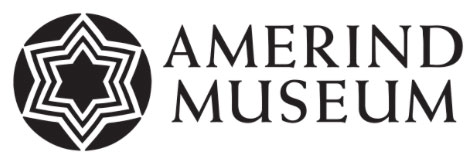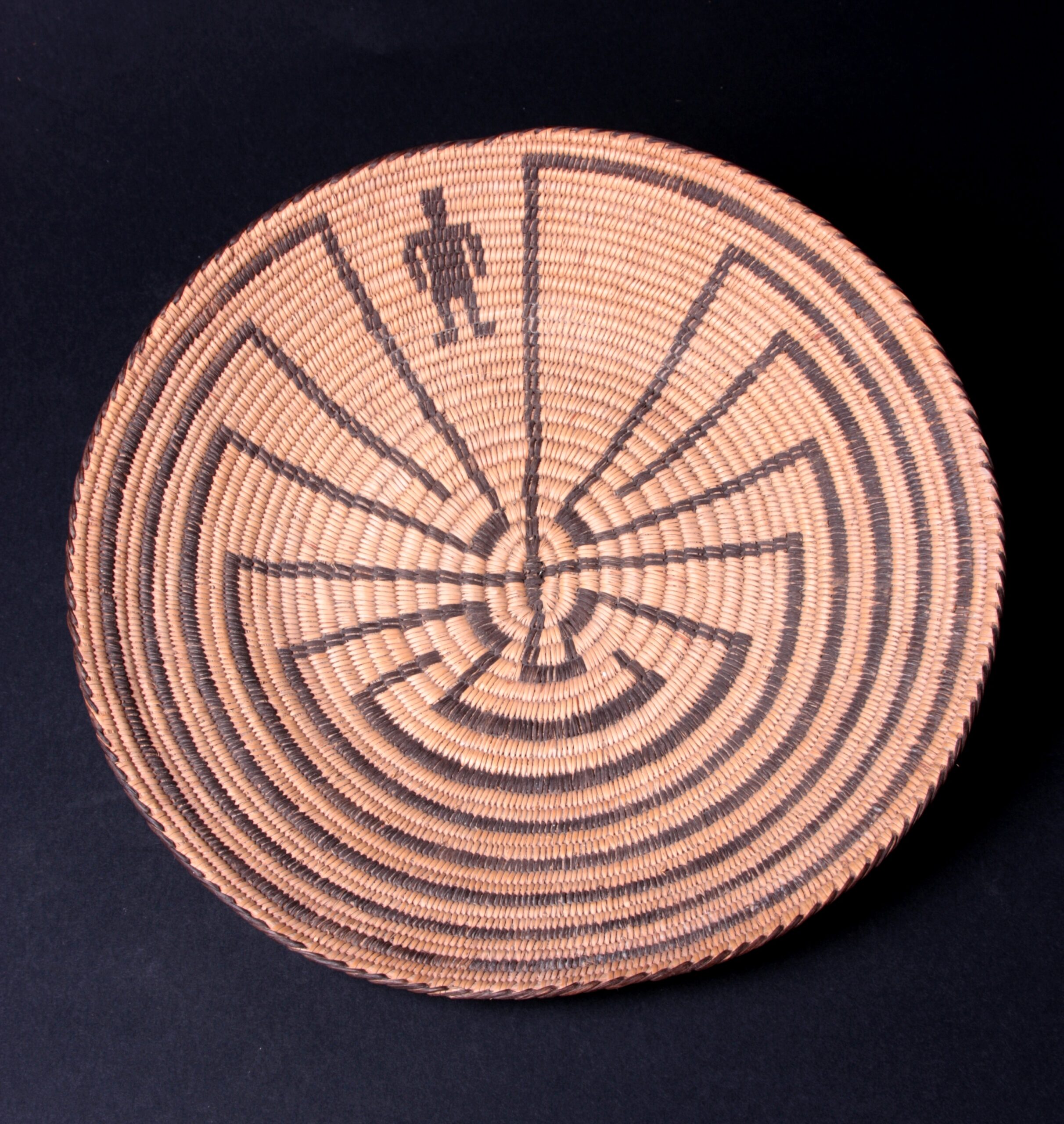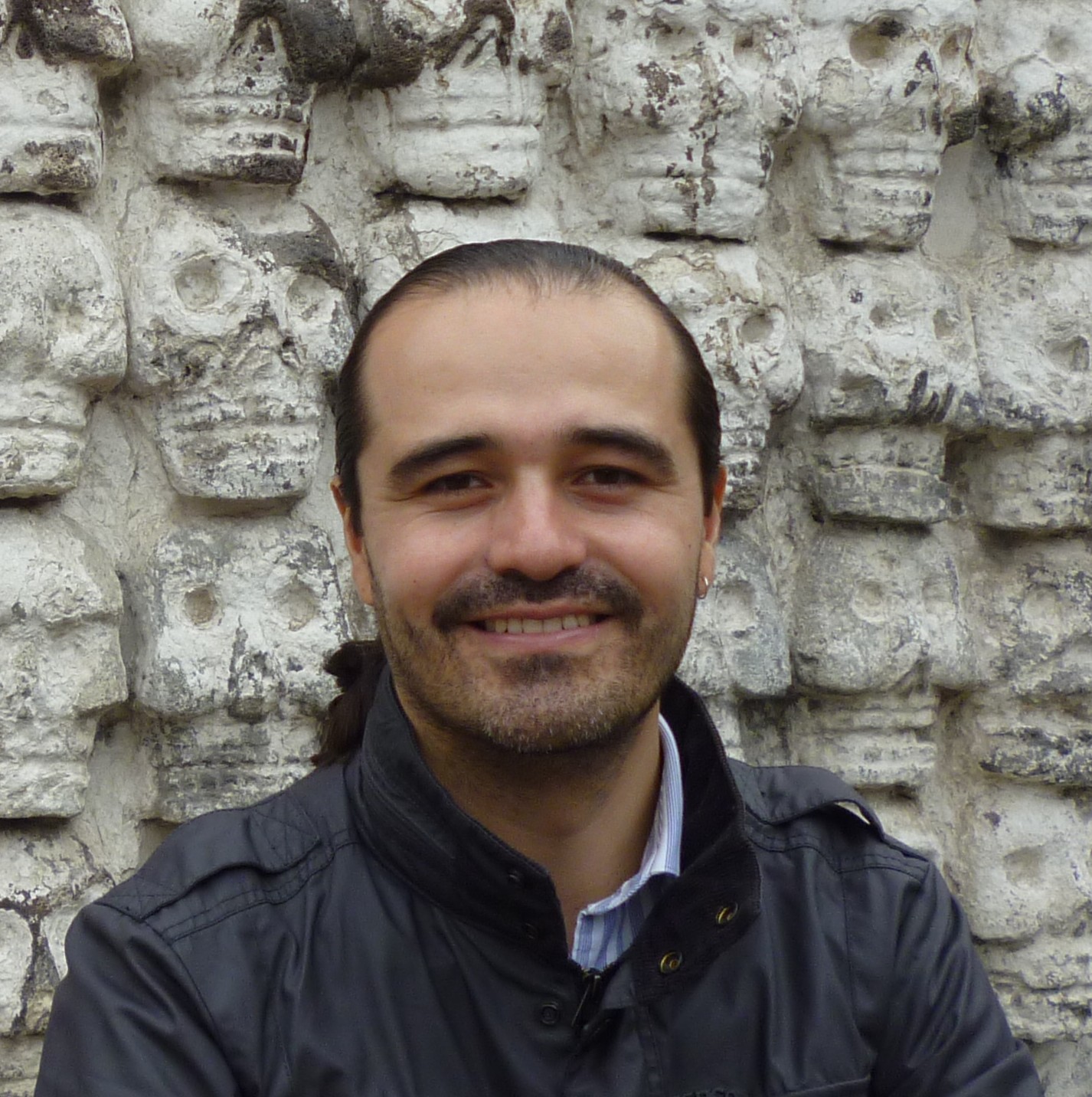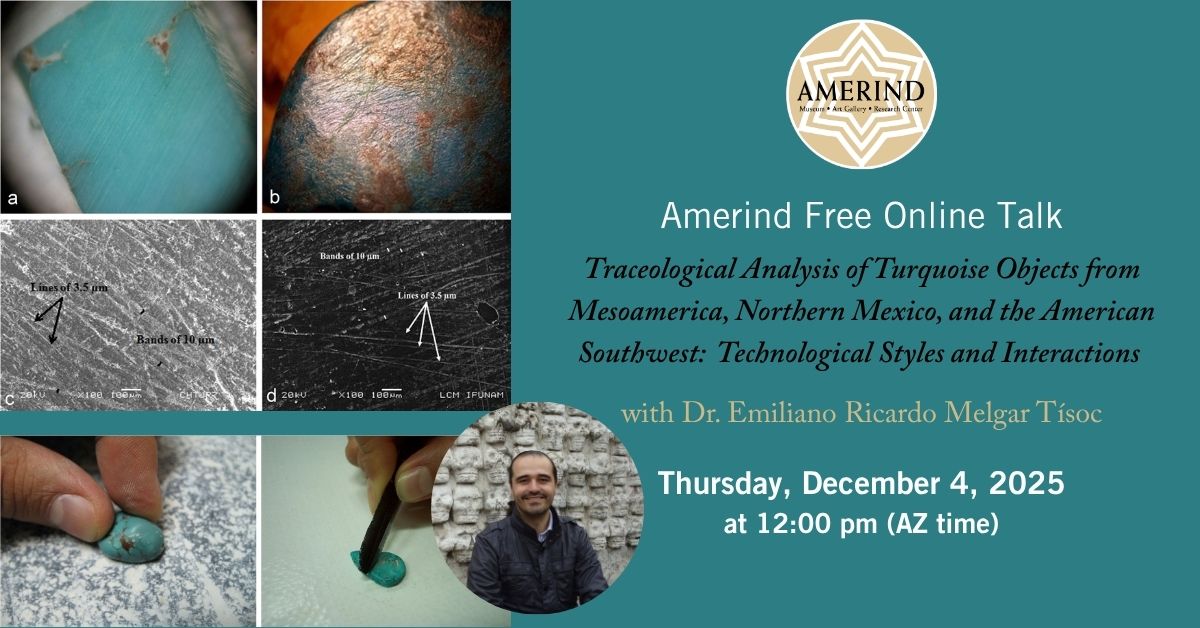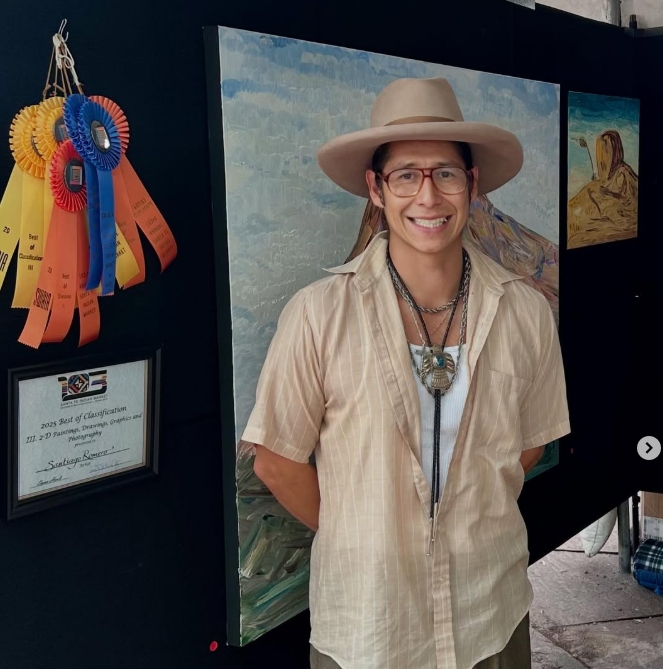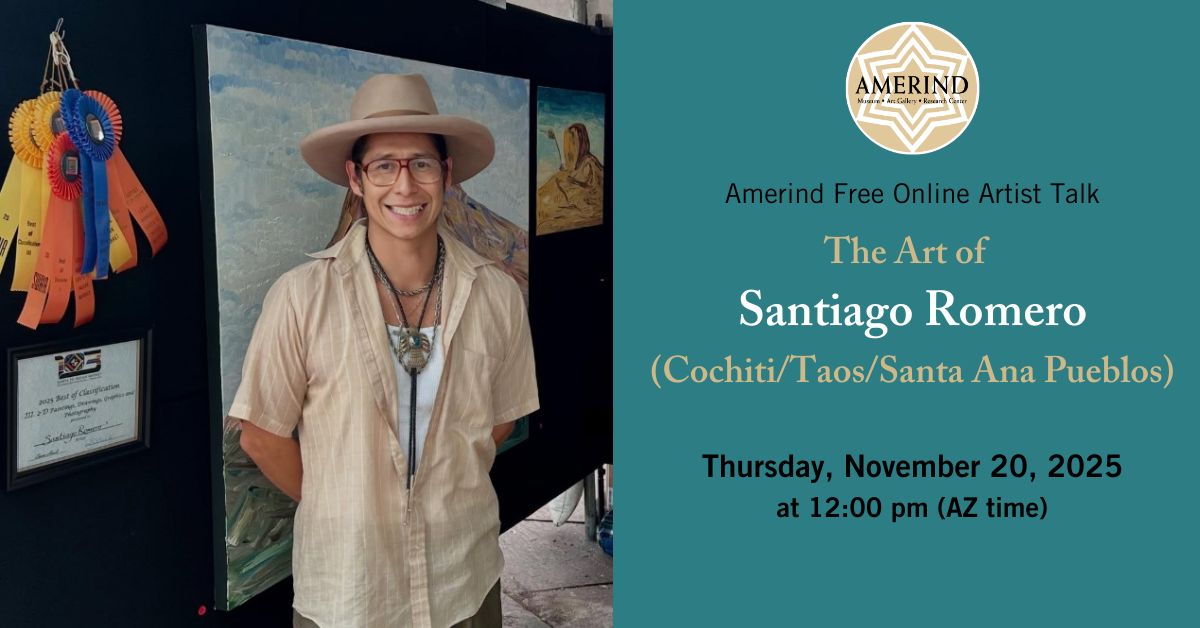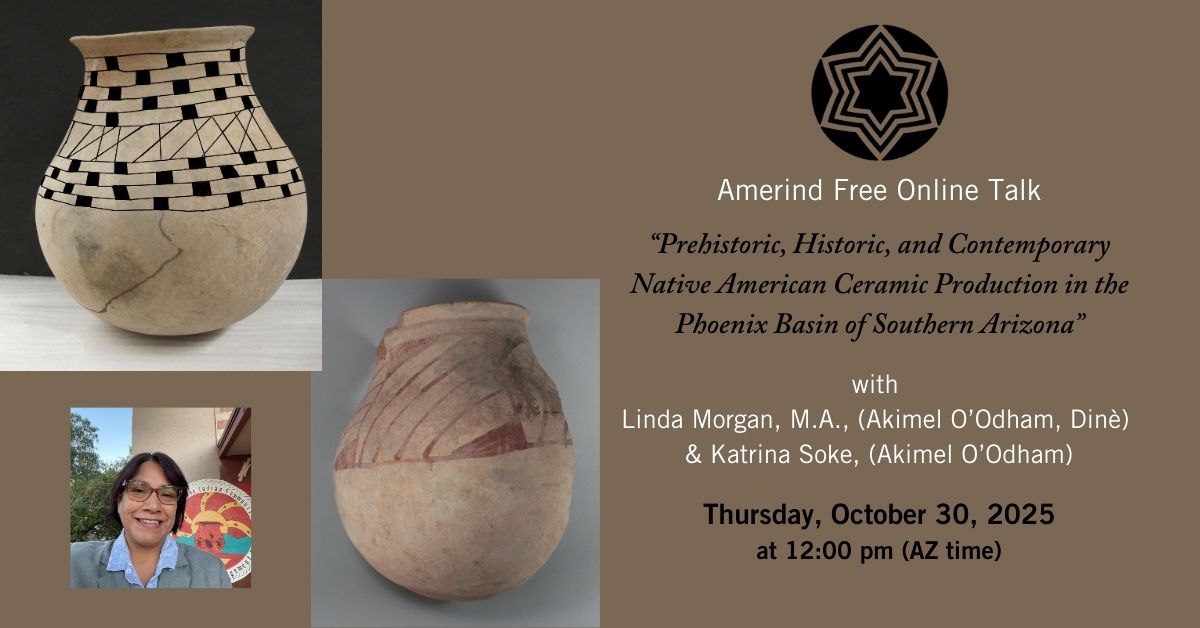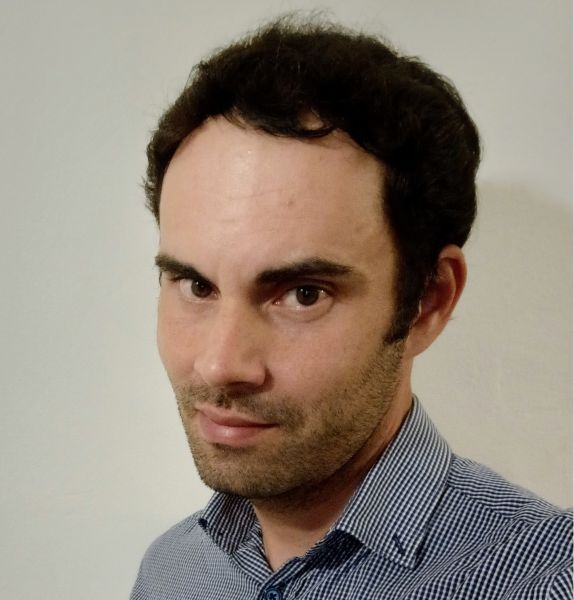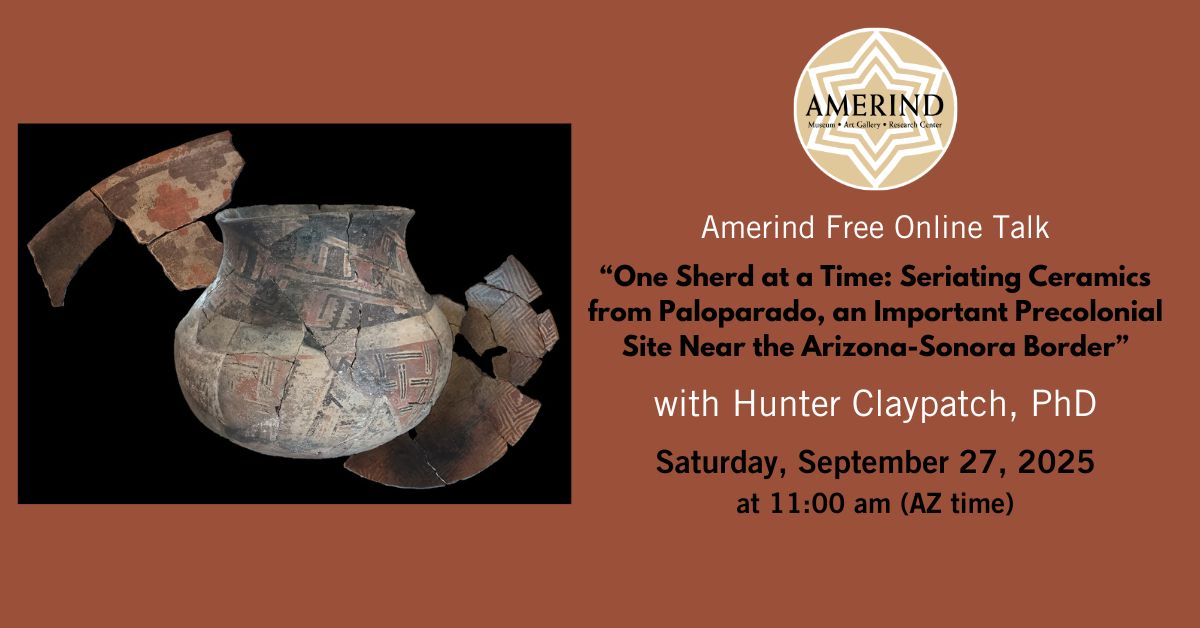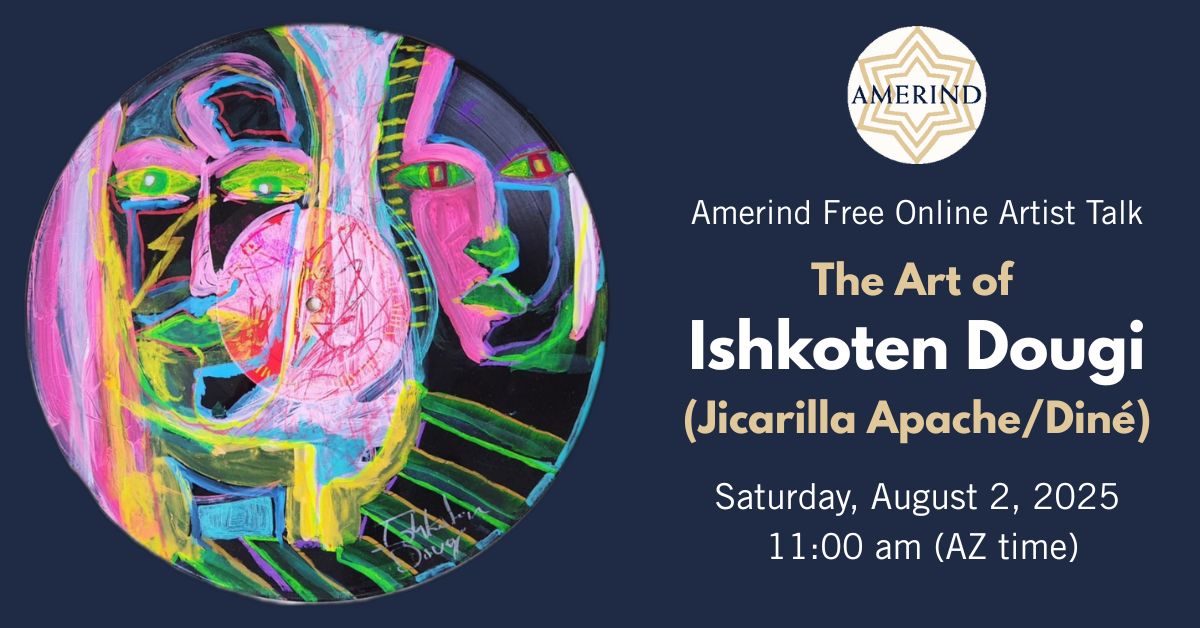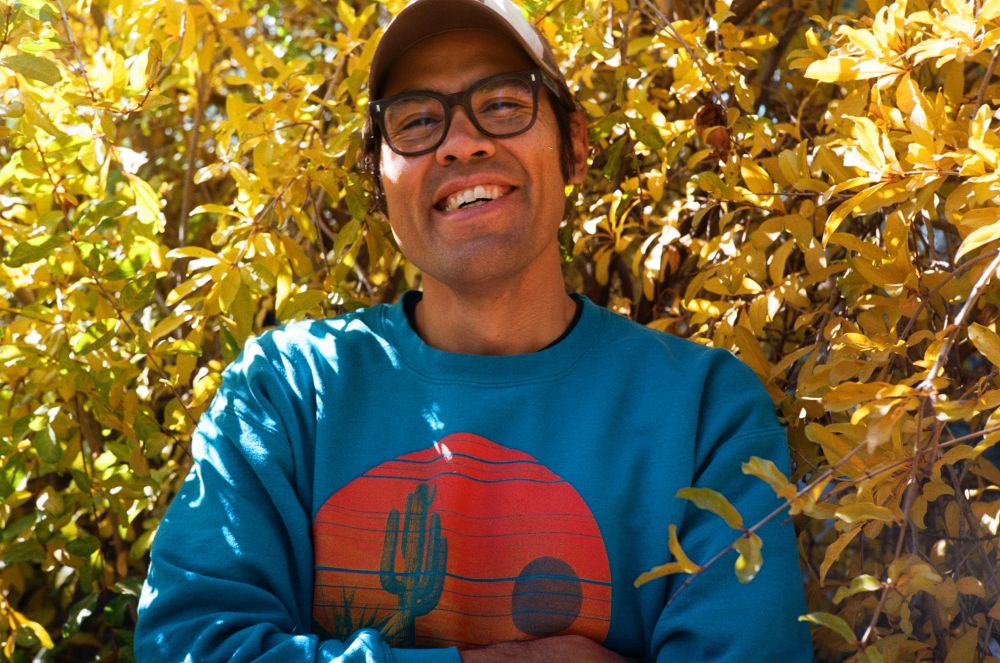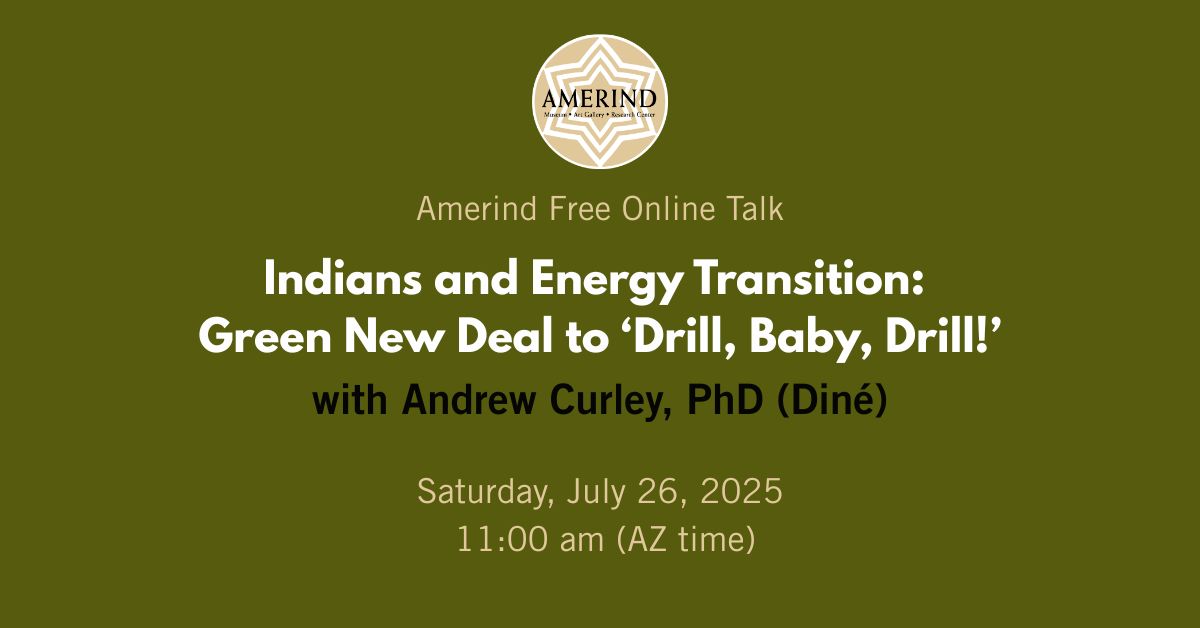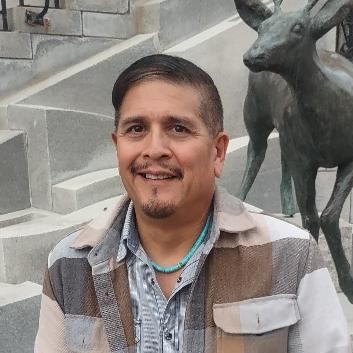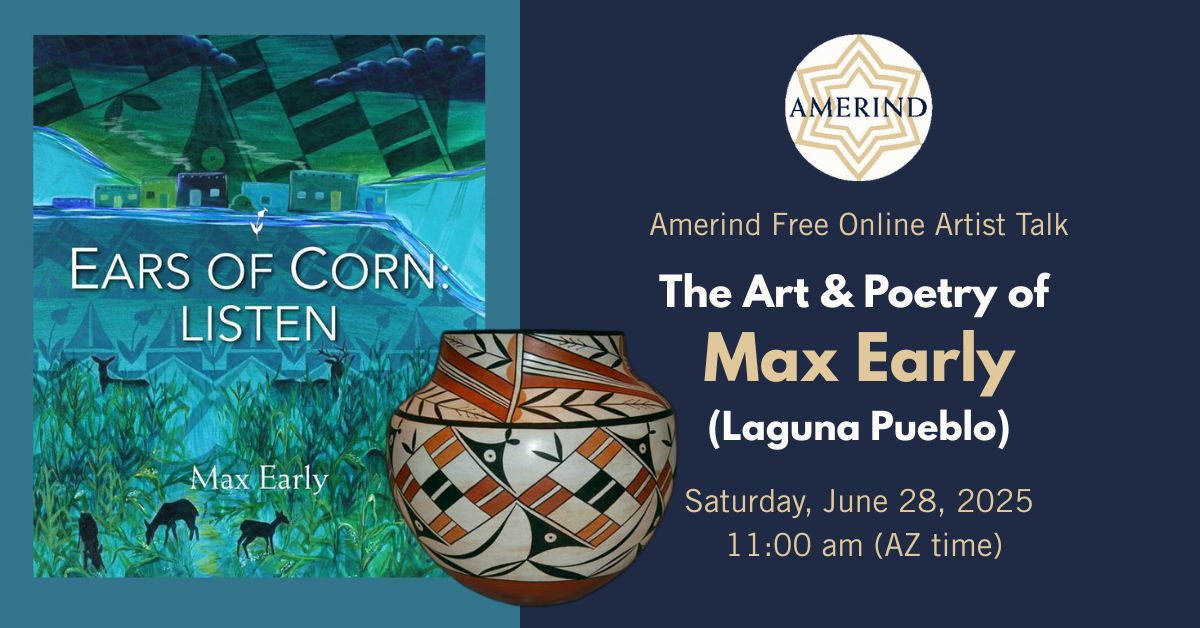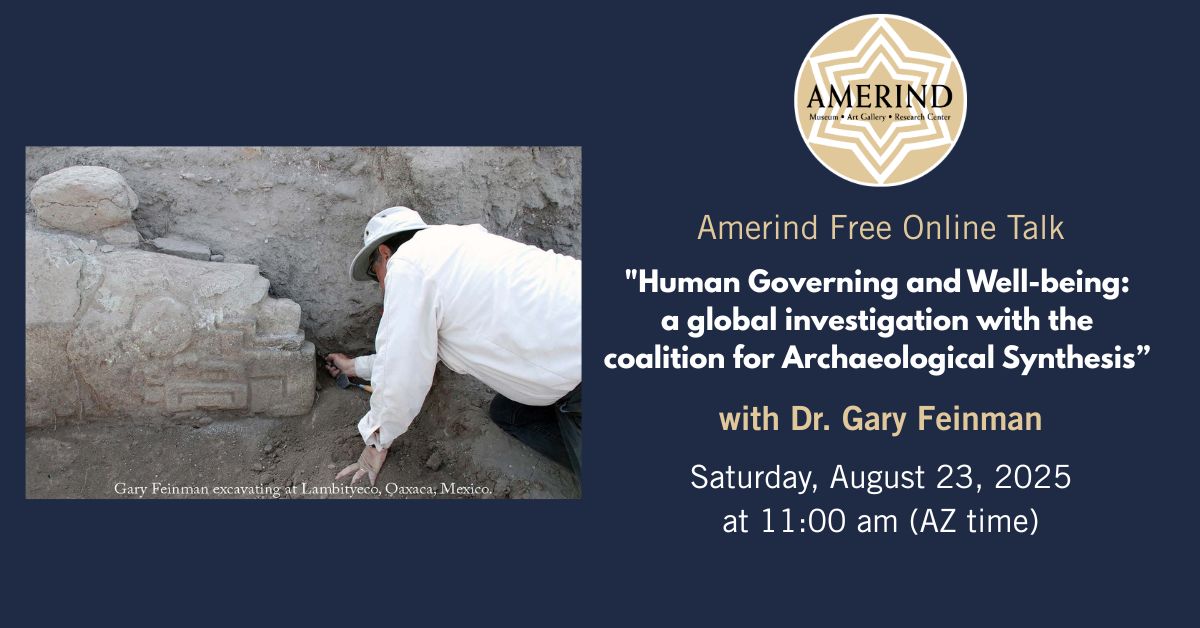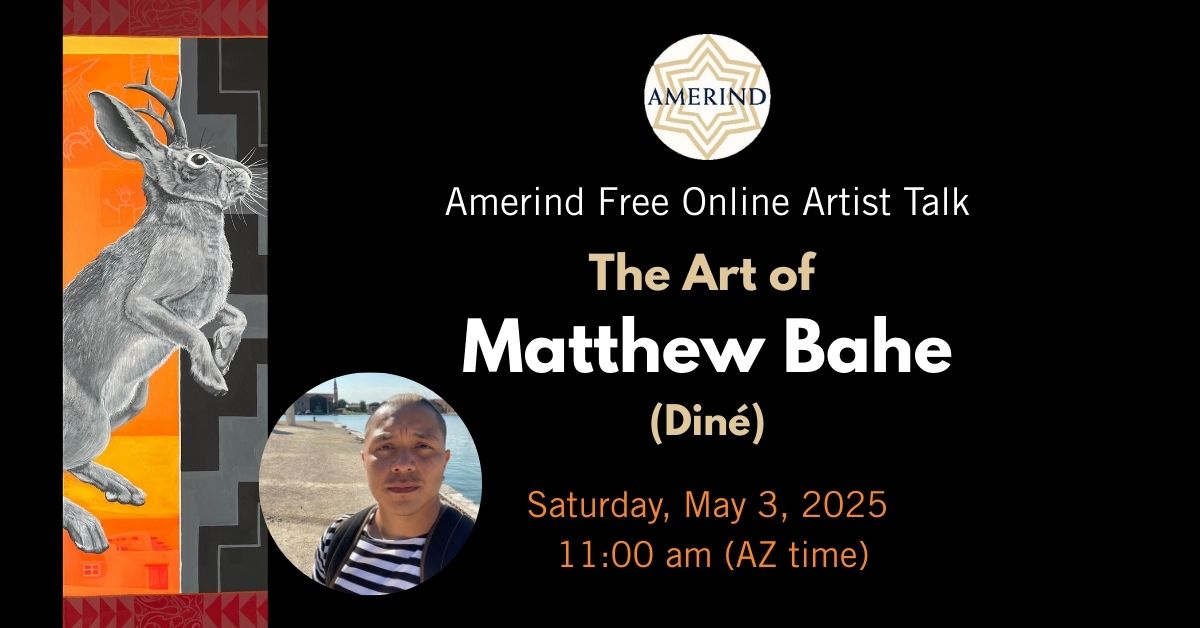
Photo: Early 20th Century O’odham Basket with “Man in the Maze” design, 13 1/4″ dia., Amerind permanent collection
Amerind Free Online Talk
Thursday, February 12, 2026
12:00 pm (AZ time)
“Our Elder Brother Dwells There: How I’itoi Ki Moved from Mountain Peak to Basket Design.” with David Martinez, PhD. (Akimel O’odham/Hia-Ced O’odham/Mexican)
To register, visit: https://bit.ly/Amerindonline02122026Martinez
Join us on Thursday, February 12, 2026 at 12:00 pm (AZ time) for a free online talk, “Our Elder Brother Dwells There: How I’itoi Ki Moved from Mountain Peak to Basket Design.” with Dr. David Martinez.
“Learn about I’itoi, Elder Brother, who taught O’odham how to live well in their desert homelands. Learn where his home, his kih, is located, according to oral tradition. Most importantly, learn about how the symbol of this home, I’itoi kih, started appearing in O’odham baskets more than a century ago. What does it all mean?”
David Martínez (Akimel O’odham/Hia-ced O’odham/Mexican), Is a Professor of American Indian Studies and Transborder Studies at Arizona State University. He is the author of the forthcoming The Maze of History: Komal Hok, O’odham Teachings, and an Earth-Based Sense of Time (University of New Mexico Press, April 2026).
Martínez is also the author of Dakota Philosopher: Charles Eastman and American Indian Thought (Minnesota Historical Society Press, 2009), Life of the Indigenous Mind: Vine Deloria Jr and the Birth of the Red Power Movement (University of Nebraska Press, 2019), My Heart Is Bound Up With Them: How Carlos Montezuma Became the Voice of a Generation (University of Arizona Press, 2023), and editor of The American Indian Intellectual Tradition: An Anthology of Writings from 1772 to 1972 (Cornell University Press, 2011).
Dr. Martínez is also the director and founder of the Institute for Transborder Indigenous Nations (ITIN), which is housed in the School of Transborder Studies at ASU, where it focuses on Indigenous nations impacted by the US-Mexico Border.
Interested but unsure if you will be able to join us live? Register using an email and the recording of the talk will be sent later that evening to all registrants.
We hope you will join us for this fascinating talk.
